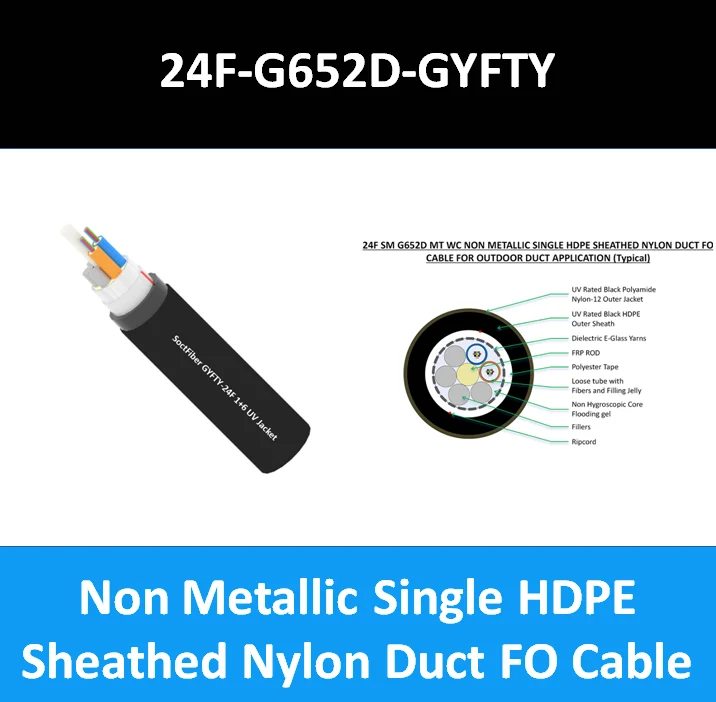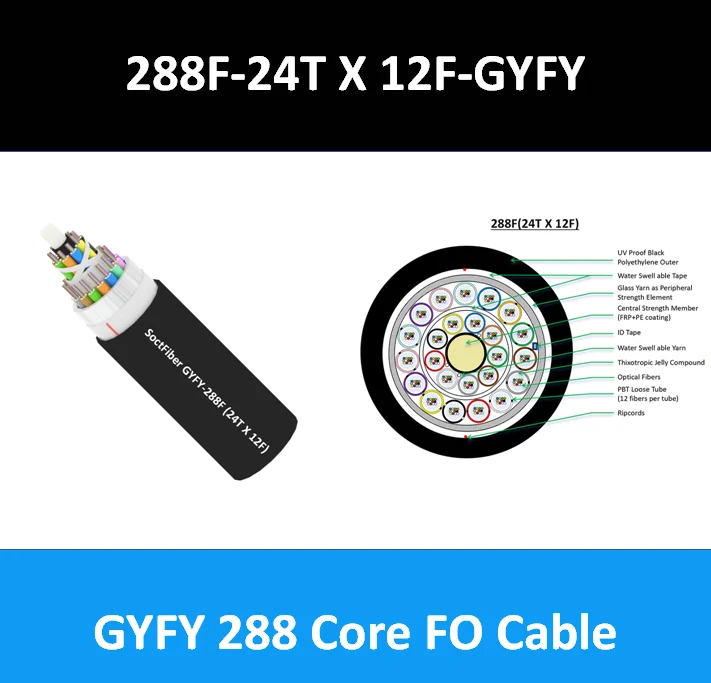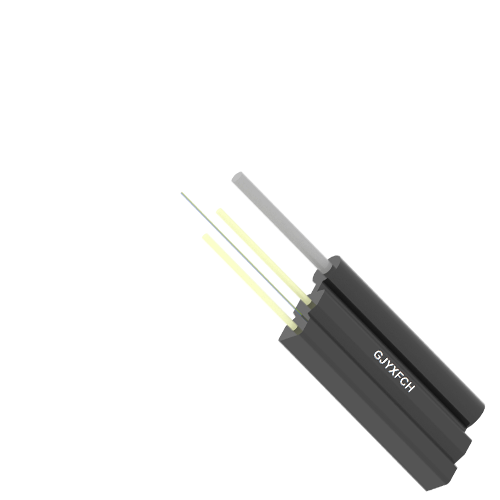Blog
Popular Blogs
- Building A, Republic International Business Plaza, No. 3699 Gonghexin Road, Jing'an District, Shanghai
- +86-21-59175887
- market@soctfiber.com
- 86-17321363317
- 86-13341796231
GDTS-24B1-2×1.5 RRU Hybrid Cable | Manufacturer & OEM Quote
If you’re building or upgrading 4G/5G sites, hybrid fiber-power cable lets you deliver CPRI/eCPRI data + DC power to the RRU through a single run—fewer pulls, fewer trays, faster turn-ups.
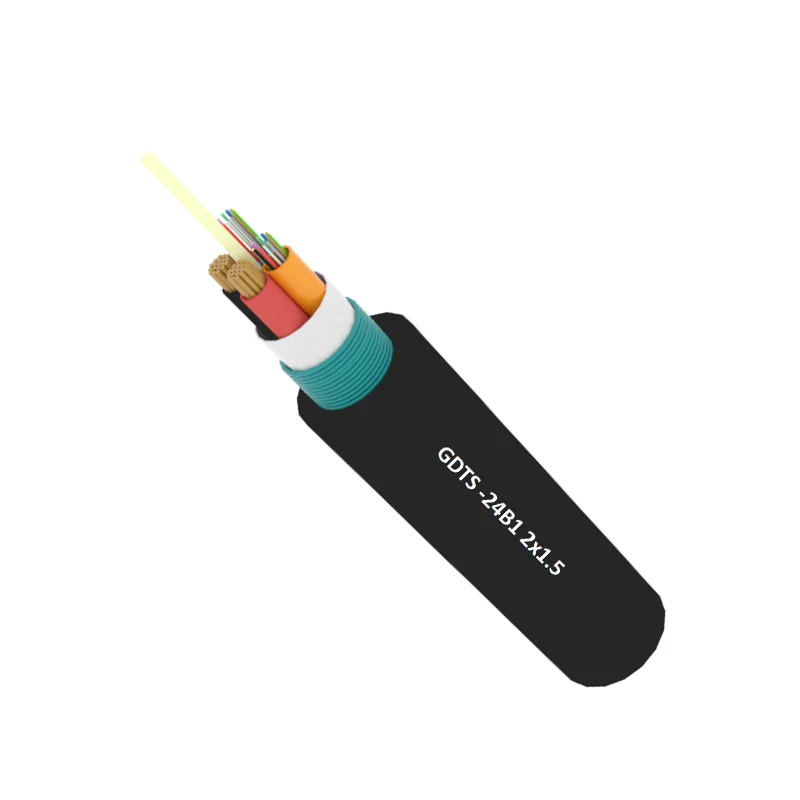
What is GDTS-24B1-2×1.5 and where it fits
GDTS-24B1-2×1.5 is a photoelectric hybrid cable combining:
- Fiber unit: typically 12F or 24F (SM, G.652D or G.657A1) for fronthaul and O&M.
- Power pair: 2×1.5 mm² copper conductors for RRU DC remote power.
It’s engineered for outdoor rooftop sites, macro cells, small cells, and DAS head-end to remote nodes, cutting installation time compared with separate fiber and DC runs.
Quick Spec Snapshot (for fast comparison)
| Item | Typical options |
|---|---|
| Fiber count | 12F / 24F (SM, G.652D or bend-insensitive G.657A1) |
| Power cores | 2×1.5 mm² (other cross-sections available on request) |
| Jacket | Outdoor-rated; UV-resistant; LSZH options available |
| Layout | Central fiber unit + segregated DC pair; moisture-blocked |
| Environment | Outdoor risers, rooftop trays, pole/boom runs, DAS nodes |
| Connectors | SC/APC or LC/UPC at termination boxes; crimp lugs for DC ends |
| Marking | Custom print & drum labels for site identification |
Need 2×2.5 mm² or a different fiber count? Ask for “hybrid fiber-power cable 24F + 2×2.5” when you request the quote.
Why RRU sites choose hybrid cable
- One pull, one route: fewer racks, glands and cable trays.
- Cleaner rooftop: less weight and fewer points of failure.
- Predictable acceptance: factory-matched fiber + power in one sheath; easier QA.
- Scalable: spare fibers for expansion (e.g., 24F) while keeping power simple.
Model & selection guide (shortlist the variant you need)
- 12F + 2×1.5 mm² — cost-optimized for single-sector or small-cell/DAS remotes where spare fibers aren’t critical.
- 24F + 2×1.5 mm² — common for macro sites; extra fibers for future radio chains, monitoring, or loop-through.
- G.657A1 fiber** (optional)** — choose when tight bends and micro-duct transitions are expected.
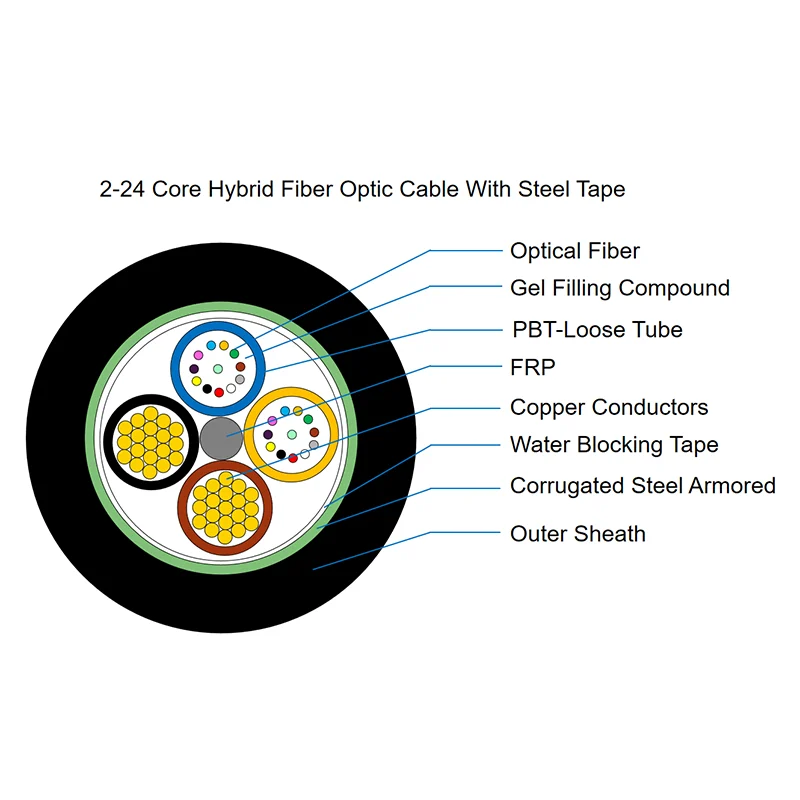
Installation & compatibility notes
- Routing: rooftop conduits and trays; secure with UV-stable ties/clamps.
- Bend radius: follow static/dynamic bend limits (bend-insensitive fiber helps).
- Termination: fiber to IP65/IP68 distribution/termination boxes; DC to RRU lugs or junctions per vendor spec.
- Testing: OTDR + end-to-end IL for fiber; voltage drop check on the 2×1.5 mm² pair vs. RRU current/length.
Pricing, MOQ & lead time — what drives your quote
Price per meter depends on:
- Fiber count (12F vs 24F) and fiber type (G.652D vs G.657A1).
- Copper content (2×1.5 mm²; alternate cross-sections if requested).
- Jacket/compound options (UV-resistant, LSZH).
- Total length (km), reel length, and packaging.
- Trade term (EXW/FOB/CIF) and destination.
MOQ is typically set per build and total kilometers. Lead time is quoted by structure and quantity; plan your drum size/reel length to minimize splices.
RFQ template
- Project & site count: (e.g., 15 rooftops, 6 macro)
- Cable build: GDTS-24B1-2×1.5, 12F or 24F, G.652D/G.657A1, jacket (UV/LSZH)
- Run lengths: typical and maximum per site (m)
- Power budget: RRU current @ voltage, acceptable voltage drop
- Terminations: connector type (SC/APC or LC/UPC), DC lug spec
- Reel plan: preferred reel length (e.g., 1–2 km) and drum size limits
- Quantity: total km for this batch; INCOTERM (EXW/FOB/CIF); destination
- Timeline: target delivery week / go-live date
- Extras: boxes, pigtails, patch cords, labels, test reports
Submitting the RFQ with these fields speeds up bulk pricing, lead time, and a ready reel plan for installers.
Buyer FAQs
Q1: 12F vs 24F — which should we pick?
If you plan additional sectors or need spare strands for monitoring and loop-through, 24F is safer. For compact DAS or single-sector remotes, 12F is often enough.
Q2: Is 2×1.5 mm² sufficient for our RRU?
Check your RRU current and distance. If voltage drop margin is tight, request 2×2.5 mm² in the same hybrid format.
Q3: Can we get G.657A1 fiber?
Yes. It’s recommended where bends are tight or you expect indoor transitions before the final termination.
Q4: What about outdoor durability?
Specify UV-resistant jacket (LSZH option available). For harsh environments, ask about temperature and abrasion requirements.
Q5: Do you supply boxes and accessories?
Yes. Bundle IP65/IP68 termination boxes, pigtails, patch cords, labeling, and test reports for a single-vendor acceptance package.
Get bulk pricing and a reel plan for GDTS-24B1-2×1.5 today.
Send your fiber count (12F/24F), run lengths, RRU current, and delivery window. We’ll reply with a line-item quote (EXW/FOB/CIF), confirmed lead time, and a site-ready bill of materials so your crew can pull once and power up fast.



